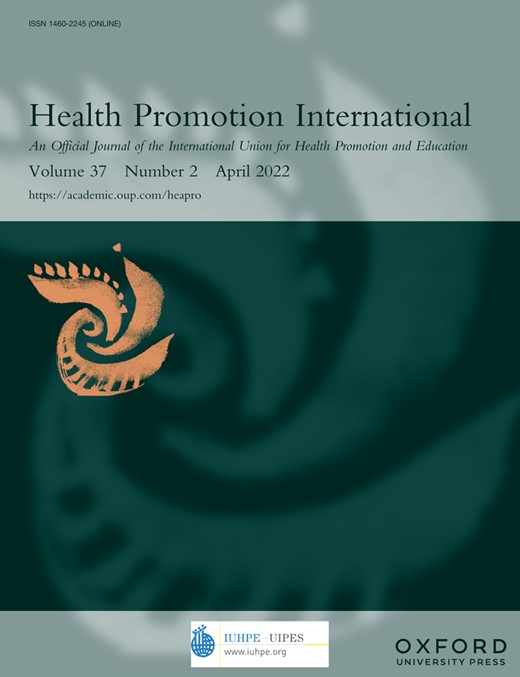-
Views
-
Cite
Cite
Sofia Temam, Nathalie Billaudeau, Sofiane Kab, Marie Zins, Stéphanie Alexander, Marie-Noël Vercambre, Health behaviours of teachers and other education professionals in France: can we do better?, Health Promotion International, Volume 37, Issue 2, April 2022, daab151, https://doi.org/10.1093/heapro/daab151
Close - Share Icon Share
Summary
Education professionals play a critical role in health education, both as knowledge providers and as role-models. Drawing on the CONSTANCES French cohort (baseline 2012–19) and adjusting for important confounders, we compared education professionals (n = 14 730) with a random sample of non-education sector employees (n = 34 244) on three indicators of high-risk behaviour (at-risk drinking, current smoking, past-year cannabis use) and three indicators of unhealthy lifestyle (low physical activity, poor adherence to nutritional guidelines, overweight/obesity). Among education professionals, we distinguished between teachers (n = 12 820), school principals (n = 372), senior education advisers (n = 189), school health professionals (n = 128) and school service staff (n = 1221). Compared with non-education sector employees with similar demographic and socioeconomic profiles, teachers were less likely to be at-risk drinkers, to smoke, to have used cannabis in the past year and to be overweight/obese. Other non-teaching education professionals were also less involved in high-risk behaviours than non-education employees, but results were more mixed concerning some lifestyle indicators, with certain non-teaching education professional groups showing a higher likelihood of being physically inactive or overweight/obese. In this nationwide French study, our results suggest a window of opportunity to promote school staff health but also indirectly, that of the youth with whom they interact daily. We suggest that school staff should be supported in health matters not only through the provision of health information but also most importantly, through the development of a favourable and supportive environment enabling them to put health knowledge into practice.
Lay Summary
Education professionals play a crucial role in health education, notably as role-models, since they come into contact with students on a daily basis. Therefore, examining their health behaviours may be instructive. In this nationwide French study, teachers appeared to behave more healthily compared with non-education sector employees in important domains such as alcohol consumption or tobacco use. However, certain non-teaching education professional groups were more likely to be physically inactive or overweight/obese. Our results highlight opportunities for interventions aimed at raising health awareness and empowerment among school staff. A comprehensive health promotion approach integrating our findings would draw less on a vertical or top-down transfer of knowledge and depend more on participation and exchange among school staff, on teachers leading by example, as well as on the development of a supportive school environment.



